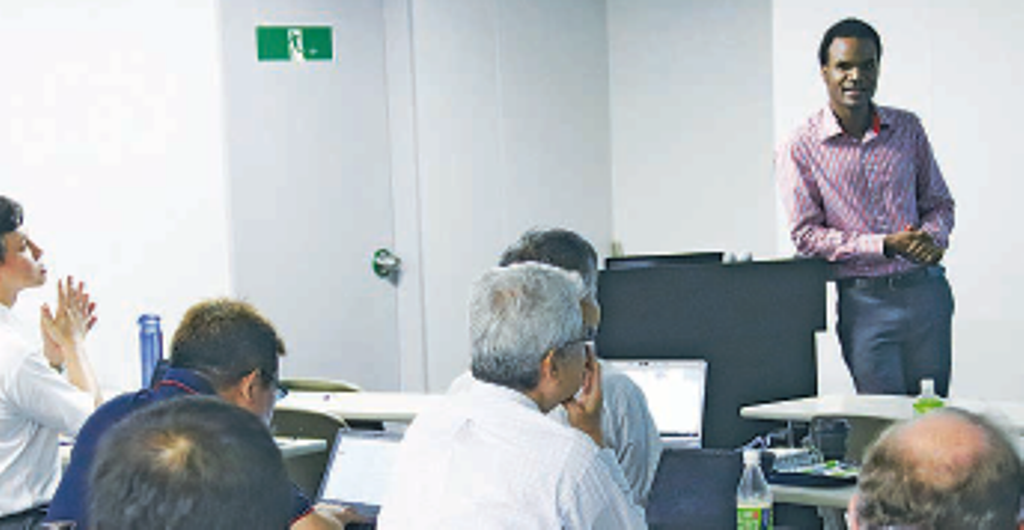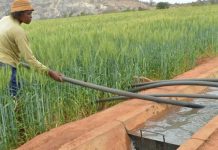A TANZANIAN, Elhard James Kumalija has developed a Smartphone application for computer programming.
He received an award at an International Academic Conference in the Netherlands.
Mr Kumalija, who is now pursuing a PhD in Japan after he successfully completed a Masters degree and internship programme of the African Business Education Initiative for Youth (ABE INITIATIVE), organised by JICA.
Mr Kumalija pursued his Masters Degree programme at Japan’s Kobe Institute of Computing under the sponsorship of Jica.
During his studies programme, Mr Kumalija managed to develop a Smartphone application for computer programming, which has earned him an award at an international academic conference in the Netherlands.
He was selected for the best paper award at the 15th international conference, Mobile Learning 2019. His paper was considered to be of the highest standard.
Mr Kumalija who conducted an exclusive interview in Japan with DAILY NEWS staff writer FLORENCE MUGARULA explains what his research paper was all about.
Above all, he advises the government of Tanzania to prefer using locally developed solutions, products and services while encouraging collaboration between local and international stakeholders, excerpt…
Question: In few words, can you tell what your research paper was all about?
Answer: Using Smartphone app as a tool for teaching computer programming for secondary school students, the app generates graphical illustration of program execution. Graphical presentation of the program execution helps students to easily understand how computers work.
Qn: Your paper emerged to be the best, what do you think was unique compared to other papers?
It is a novel research idea utilising widely available Smartphone for computer education. It is potential in closing the digital divide between resource rich schools and schools without computer laboratories.
It has the potential of changing students’ and parents’ perception that Smartphone are for entertainment and communication only, but also as a learning and teaching tool.
Qn: What motivated you about the research?
I love using computers since the time of internet cafes when I was in primary school. I didn’t have that much opportunity those days because of high cost of internet cafes. Now with Smartphone is like an internet cafe on your palm, but I saw still there is something missing.
How students can learn the underlying working of those devices they are holding? Furthermore, how can they learn to command a truly faithful slave (computers) to do what they want it to do for them? This is where computer programming comes in, it enables students to be creators not just consumers of digital technology.
Qn: Do you think your study findings will help to bring changes to Tanzania and Africa in general?
ICT application is everywhere from agriculture, industry, business, health and so forth. Currently, computational skill (how computer software works) is like mathematics, you don’t need to be a mathematician to study mathematics or use maths knowledge in daily life.
Tanzania and Africa in general should teach computational skills to all levels of education, this will inspire utilizing ICT to solve different challenges in workplace and collaboration between ICT professionals and other field. My research is aiming at providing computation skills using widely available Smartphone.
Qn: What do you think are main challenges facing African students/innovators in Africa and in particular Tanzania?
Mentality is the biggest challenge, there is a sense of thinking that they are inferior and thus they fail to compete in this global village, they fail to support local innovators and products. It is a community responsibility to change this, from family to national level leadership.
If Nyumbu is producing cars it could be very proud for the president to drive a Nyumbu car, this can lead to collaboration between Toyota and Nyumbu. We have to support our young innovators by using their services and products.
Qn: What can Tanzanian students borrow from your paper for their future growth or development?
Developments start by utilising what is available in local environment. There are areas which we can compete with developed countries with little investment. For example in software development with a 400,000Tsh laptop available in Kariakoo and a talented student a mobile application can be developed to solve a social problem.
Qn: What is your advice to the government and other stakeholders in line with the research?
The government should prefer using locally developed solutions, products and services while encouraging collaboration between local and international stakeholders. I will release this application for free community use in Tanzania, education stakeholders, students and teachers can adopt it for their teaching and learning activities.
I am in talks with Kobe institute of computing, Japan, the university of Dodoma and other stakeholders in Japan and Tanzania on promoting adoption of this app in Tanzania primary and secondary schools.







